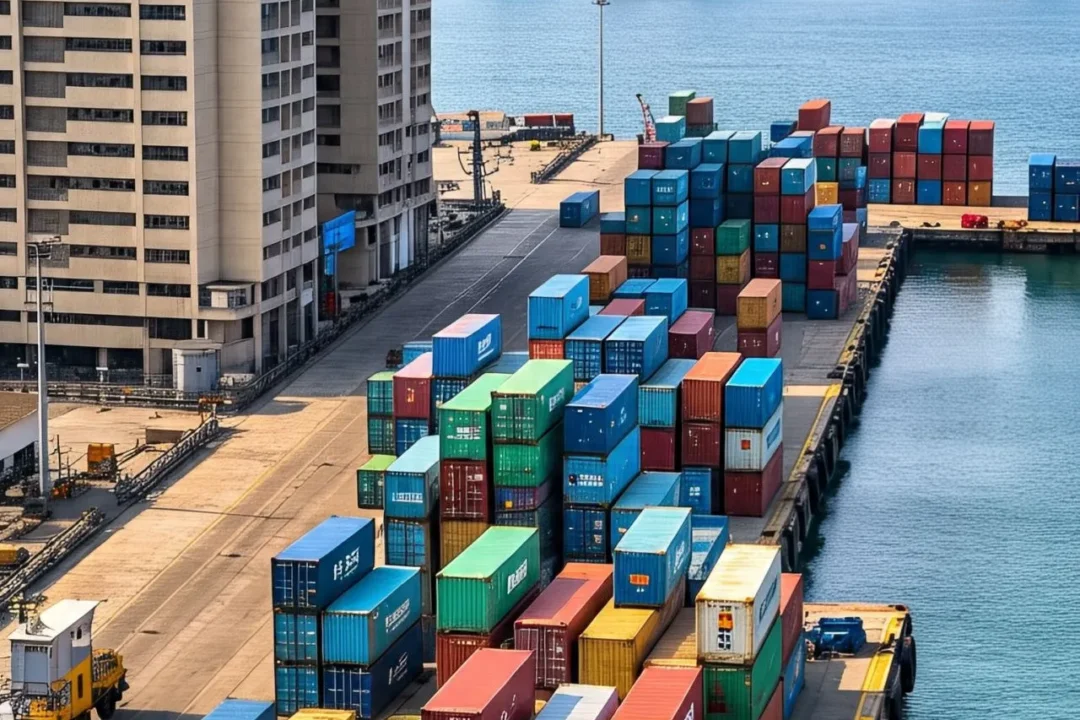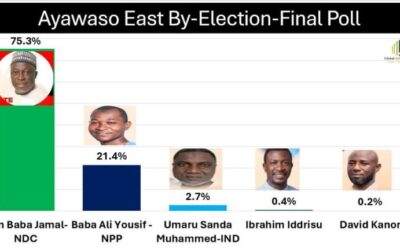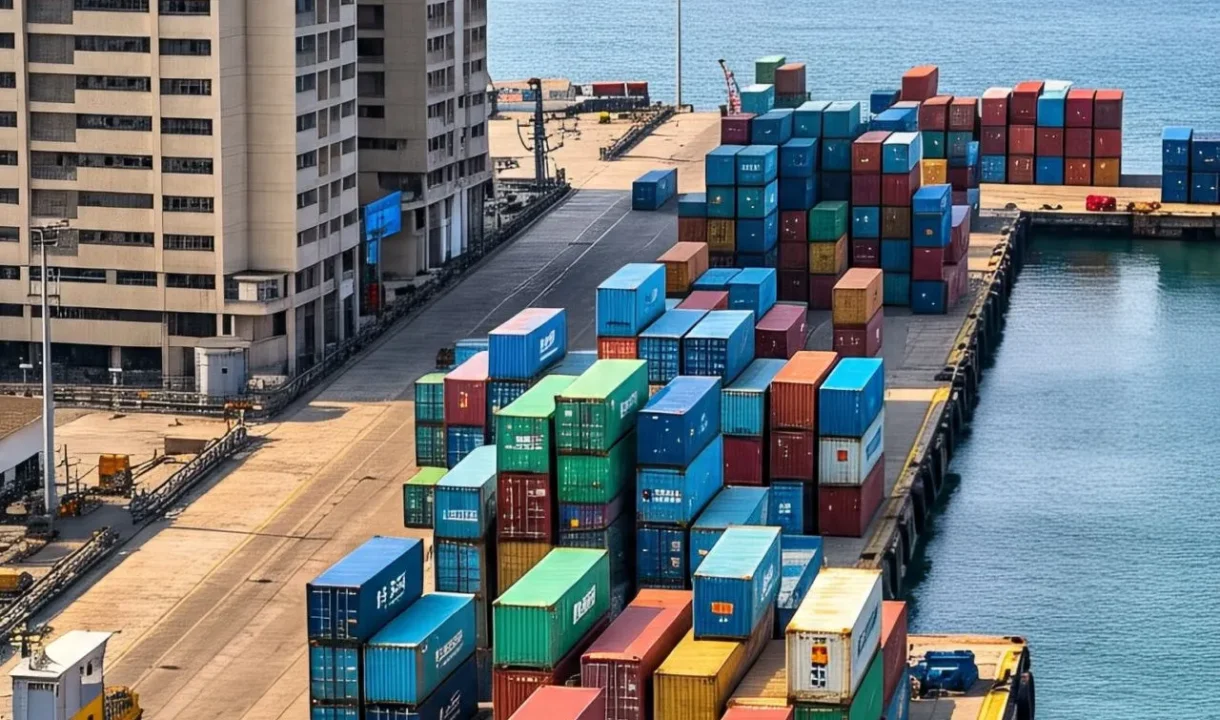BY KINGSLEY E.HOPE
Under the blistering heat of the Tema port, towering shipping containers stretch across the skyline—metal monoliths shielding cargo essential to life. Inside some of these containers are diabetes medications: insulin vials and oral drugs that thousands of Ghanaians depend on daily. But these life-saving treatments are not moving. They are caught in a tangle of bureaucracy and inefficiency, sitting for days—sometimes weeks—turning toxic under the unforgiving West African sun.
For patients across Ghana, this is not simply a logistical problem. It is a slow-burning, nationwide health emergency hidden in plain sight.
“By the time these medications reach hospitals and pharmacies, prices have increased, supplies have diminished, and in some cases, the drugs are compromised,” said a pharmaceutical logistics expert who requested anonymity.


A Chain of Vulnerabilities
The first fault line in this broken system appears right at the Tema Harbor—Ghana’s busiest import gateway. Here, pharmaceutical imports undergo scrutiny from multiple regulatory agencies, including the Food and Drugs Authority (FDA), the Ghana Revenue Authority, and occasionally the Ghana Standards Authority.
“The system was built for thoroughness, not speed,” explains Nana Kwame Nuamah, a customs broker specializing in pharmaceutical imports. “A single missing document can delay clearance by weeks—while patients run out of their medication.”
Data from the Ghana Shippers Authority reveals that pharmaceutical imports spend an average of 21 days at port—well beyond the global benchmark of 3 to 7 days. For temperature-sensitive products like insulin, these delays are not just inconvenient—they are disastrous.

From Port to Patient: A Fractured Distribution System
After clearing the port, diabetes medications enter a distribution network that is anything but cohesive. Ghana lacks a centralized procurement and distribution mechanism for many essential drugs. Instead, numerous small-scale importers and distributors operate with little oversight.

Containers under the scorching sun
At the Central Medical Stores in Tema—tasked with supplying public hospitals—a six-month buffer stock is mandated by policy. In practice, budget constraints and procurement inefficiencies mean chronic shortages. Review of internal records shows frequent stockouts of even basic medications like metformin.
The Private Sector: Reliable, but Costly
When public hospitals run dry, patients often turn to private pharmacies. In Bantama, a suburb of Kumasi, pharmacist Peter Mensah opens a refrigerator brimming with insulin vials. “We import directly or source from multiple wholesalers, so we stay stocked,” he says. “But these costs trickle down to the patient.”
A month’s supply of insulin in private pharmacies can cost between GHC 400 and GHC 800—two to three times higher than public sector rates when available.
Counterfeit Medications: A Growing Threat
When genuine drugs are inaccessible or unaffordable, the black market steps in. At the FDA’s Quality Control Lab in Accra, analysts routinely inspect fake and substandard drugs seized from pharmacies and vendors.
In 2024 alone, over 200 falsified diabetes medication packages were confiscated. Some had no active ingredient, others only partial amounts—and some contained dangerous substitutes. The World Health Organization estimates that up to 30% of medications in Ghana may be substandard or counterfeit, with chronic disease treatments particularly vulnerable.
Local Manufacturing: An Unmet Opportunity
Ghana has about 38 licensed pharmaceutical manufacturers, but only two produce diabetes medications—and none make insulin. Manufacturing insulin requires advanced biotechnology infrastructure and high upfront investments of up to $20 million, far beyond the capacity of most local firms without government support or external partnerships. Without reliable local production, Ghana remains entirely dependent on imports.
Regulatory Bottlenecks
The hurdles do not end at the port. Registering a new diabetes medication with the FDA can take between 12 and 18 months and cost thousands of dollars. This is a significant barrier, especially for newer, more effective treatments.
Of the 30 diabetes drugs approved by the U.S. FDA and European Medicines Agency over the last five years, only seven are registered in Ghana—including glimepiride and gliclazide (Diamicron).
Procurement Pains and NHIS Shortfalls
Even, once medications reach the country, the public procurement system often fails. The National Health Insurance Authority (NHIA), which reimburses health providers, frequently delays payments—sometimes for over a year.
This has real consequences. Mr. Benedictus Dzeble, a health administrator at Adum Clinic in Kumasi, recalled, “Between 2018 and 2021, the NHIA owed us 22 months of arrears. We had to stop treating insured patients.” Though the scheme eventually cleared the backlog, the disruption lingered.However, we are considering going back to the scheme to treat more patients.
Other systemic flaws persist. Many rural clinics can not prescribe certain diabetes medications due to their lower facility classification. “It’s not a matter of doctor knowledge,” Mr.Dzeble says, “but of policy. The prescribing level must be reviewed to improve access.”

Mr.Dzeble in an interview
Aaron Nyamekye, Deputy National Secretary of the Private Health Facilities Association of Ghana(PHFAG), notes that payment delays also stem from administrative technicalities. “The previous government paid claims up to September 2024. The current administration has started payments for 2025, but not all facilities have received theirs.”
Innovation Offers Hope
Despite the bleak picture, there are glimmers of progress. The Pharmacy Council of Ghana has launched the National Electronic Pharmacy Platform (NEPP), which allows prescriptions to be uploaded digitally. Pharmacies within a certain radius can respond with availability and pricing—turning access into a competitive, time-sensitive process.
There is also the Light Wave Health Information Management System (LHIMS), an electronic platform used by hospitals to digitally document patients’ information. This technology is linked to the NEPP.
Dr.(Pharm) Esther Asantewaa Acherekoh, Head of Pharmacy at Manhyia Government Hospital, praises the system. “It’s like a digital race. If one pharmacy can’t fulfill the prescription in time, it goes back into the pool for others to claim.
”Dr. Acherekoh indicated that tech-savvy patients can upload their prescriptions to check which pharmacies have their needed medications in stock, adding that the system is currently being piloted with hopes it would be sustained and rolled out to other pharmacies.

Dr (Pharm)Esther Asantewaa Acherekoh
She added, “Digitizing pharmacy services also reduces the risk of counterfeit medications reaching patients since each transaction is traceable and verifiable on the platform.
Another promising innovation comes from the MinoHealth AI Lab in Accra, which has designed Moremi AI, an artificial intelligence platform that can screen, diagnose, generate treatment plans, and prescribe medications for diabetes.
According to Darlington Akogo, CEO of Moremi AI, “this innovation ensures that patients in critical need receive timely medical attention regardless of their location. We are combining AI with public health strategy to bridge the gap between patients and specialists, especially in under-resourced settings.”
He continued, “In many rural areas, access to trained endocrinologists is nearly nonexistent. Moremi AI acts as a clinical decision support system, empowering frontline health workers with accurate, real-time recommendations tailored to each patient.”
The company is working with health facilities in the country to deploy their AI solutions across Africa and beyond.
Meanwhile, Zipline’s drone delivery network ensures temperature-controlled medications reach remote clinics within 30 minutes of request.
The Human Cost
But these innovations are only beginning to scale—and time is running out for many. Kwadwo Agyei, a 52-year-old mechanic from Sankore, knows this all too well. Diagnosed with Type 1 diabetes as a teenager, he has been hospitalized three times in the past year due to medication shortages.
“Last November(2024), my usual insulin was nowhere to be found,” he recalls from a hospital bed, recovering from diabetic ketoacidosis. “The only option was an alternative brand at four times the cost. I tried rationing what I had—and ended up here.”
Ernest Kofi Bentsil Simmons, a nursing officer at the facility, laments, “We’re not losing this battle because we don’t understand the disease—we’re losing because patients can’t consistently access affordable medications, especially in rural areas.”
A National Imperative
The World Bank estimates that diabetes accounts for 5–7% of Ghana’s total health expenditure, with an annual per-patient cost of $250–$350. The broader economic impact—lost productivity, early deaths, and preventable hospitalizations—amounts to as much as 2% of GDP.
Fixing Ghana’s diabetes medication supply chain is not just a public health challenge—it’s an economic necessity.
Health experts call for urgent reforms: faster drug registration, pooled procurement to reduce costs, incentives for local production, expansion of NHIS coverage for more diabetes drugs, and stricter enforcement to eliminate counterfeit products.
Until then, patients like Agyei will continue to suffer the consequences of a system that works only on paper. For millions of Ghanaians living with diabetes, reform can’t wait.Their lives depend on it.
Diabetes is a serious health condition that affects millions of people worldwide. But what causes it, and how serious is it?
Type 1 diabetes occurs when the body doesn’t produce insulin, a vital hormone that regulates blood sugar levels. Type 2 diabetes develops when the body becomes resistant to insulin, often due to unhealthy food choices, lack of physical activity, family history, or excess weight.
If left unmanaged, diabetes can lead to severe consequences, including heart damage, kidney disease, vision loss, nerve damage, and foot damage. However, by understanding the causes and taking proactive steps, individuals can manage diabetes and reduce the risk of complications.
To take control of your health,experts say, focus on eating a balanced diet, engaging in regular physical activity, and monitoring your blood sugar levels. Consult your healthcare provider for personalized advice.
Don’t let diabetes control your life. Take the first step towards managing your health today!This resource was produced as part of the Science,Technology and Innovation (ST&I) project being implemented and funded by the British High Commission and KNUST/RAIL



















